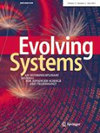
Evolving Systems covers surveys, methodological, and application-oriented papers in the area of dynamically evolving systems. ‘Evolving systems’ are inspired by the idea of system model evolution in a dynamically changing and evolving environment. In contrast to the standard approach in machine learning, mathematical modelling and related disciplines where the model structure is assumed and fixed a priori and the problem is focused on parametric optimisation, evolving systems allow the model structure to gradually change/evolve. The aim of such continuous or life-long learning and domain adaptation is self-organization. It can adapt to new data patterns, is more suitable for streaming data, transfer learning and can recognise and learn from unknown and unpredictable data patterns. Such properties are critically important for autonomous, robotic systems that continue to learn and adapt after they are being designed (at run time).
Evolving Systems solicits publications that address the problems of all aspects of system modelling, clustering, classification, prediction and control in non-stationary, unpredictable environments and describe new methods and approaches for their design.
The journal is devoted to the topic of self-developing, self-organised, and evolving systems in its entirety — from systematic methods to case studies and real industrial applications. It covers all aspects of the methodology such as
Evolving Systems methodology
Evolving Neural Networks and Neuro-fuzzy Systems
Evolving Classifiers and Clustering
Evolving Controllers and Predictive models
Evolving Explainable AI systems
Evolving Systems applications
but also looking at new paradigms and applications, including medicine, robotics, business, industrial automation, control systems, transportation, communications, environmental monitoring, biomedical systems, security, and electronic services, finance and economics. The common features for all submitted methods and systems are the evolving nature of the systems and the environments.
The journal is encompassing contributions related to:
1) Methods of machine learning, AI, computational intelligence and mathematical modelling
2) Inspiration from Nature and Biology, including Neuroscience, Bioinformatics and Molecular biology, Quantum physics
3) Applications in engineering, business, social sciences.
《Evolving Systems》是一本由SPRINGER HEIDELBERG出版商出版的专业计算机科学期刊,刊期6 issues per year,该刊已被国际权威数据库SCI、SCIE收录。在中科院最新升级版分区表中,该刊分区信息为大类学科:计算机科学4区,小类学科:计算机:人工智能 4区;在JCR(Journal Citation Reports)分区等级为Q3。该刊发文范围涵盖计算机人工智能等领域,旨在及时、准确、全面地报道国内外计算机人工智能工作者在该领域取得的最新研究成果、工作进展及学术动态、技术革新等,促进学术交流,鼓励学术创新。2022年影响因子为3.2,
名词释义:中科院分区是中国科学院国家科学图书馆制定,中科院分区目前分为基础版和升级版(试行),基础版先将JCR中所有期刊分为13大类学科,每个学科分类按照期刊的3年平均影响因子高低,分为4四个区;升级版将期刊分为18个大类学科,涵盖数学、物理与天体物理、化学、材料科学、地球科学等大类学科;升级版设计了“期刊超越指数”取代影响因子指标。期刊超越指数即本刊论文的被引频次高于相同主题、相同文献类型的其它期刊的概率。
JCR分区(当前数据版本:2021-2022年最新版)
| JCR分区等级 | JCR所属学科 | 分区 | 影响因子 |
| Q3 | COMPUTER SCIENCE, ARTIFICIAL INTELLIGENCE | Q3 | 无 |
名词释义:JCR(Journal Citation Reports)由科睿唯安公司(前身为汤森路透)开发,JCR分区将期刊分为176个学科。该排名根据当年不同学科的影响因子,分为Q1、Q2、Q3、Q4四个区域。 Q1代表不同学科进行分类可以影响细胞因子前25%的期刊,以此作为类推,Q2是前25%-50%的期刊,Q3是前50%-75%的期刊,Q4是后期75%的期刊。
Cite Score 排名
| CiteScore | SJR | SNIP | 学科类别 | 分区 | 排名 | 百分位 |
| 5.90 | 0.630 | 0.901 | 大类:Mathematics 小类:Control and Optimization | Q1 | 17 / 121 |
86% |
| 大类:Mathematics 小类:Modeling and Simulation | Q1 | 47 / 316 |
85% |
|||
| 大类:Mathematics 小类:Control and Systems Engineering | Q2 | 75 / 286 |
73% |
|||
| 大类:Mathematics 小类:Computer Science Applications | Q2 | 211 / 792 |
73% |
名词释义:CiteScore 是在 Scopus 中衡量期刊影响力的另一个指标,其作用是测量期刊的篇均影响力。当年CiteScore 的计算依据是期刊最近4年 (含计算年度) 的被引次数除以该期刊近四年发表的文献数,文献类型包括:文章、评论、会议论文、书籍章节和数据论文,社论勘误表、信件、说明和简短调查等非同行评议的文献类型均不包含在内。
1、Evolving Systems期刊级别中等偏靠后,影响力一般,竞争相对来说不算太难,过审也相对较容易,建议您可以关注。研究方向为COMPUTER SCIENCE, ARTIFICIAL INTELLIGENCE,建议您投递与此行业相关的稿件,以兔被拒稿耽误您的时间。建议稿件控制10页以上,4600单词字数以上(未翻译中文字数8600字数以上);文章撰写语言为英语;(单栏格式,单倍行距,内容10号字体,文章内容包含:题目,所有作者姓名、最高学位,作者单位(精确到部门),通信作者邮箱,摘要,关键词,内容,总结,项目基金,参考文献,所有作者相片+简介)。
2、该期刊近年没有被列入国际期刊预警名单(2021年12月发布的2021版),广大学者可以放心选择。鼓励提交以前未发表的文章,禁止一稿多投;拒绝抄袭、机械性的稿件;
3、稿件重复率控制10%以内,论文务必保证原创性、图标、公式、引文等要素齐备,已发表或引用过度的文章将不会被出版和检索。
4、稿件必须有较好的英语表达水平,有图,有表,有公式,有数据或设计,有算法(方案,模型),实验,仿真等。
5、参考文献控制25条以上,参考文献引用一半以上控制在近5年以内;图表分辨率必须达到300dpi;参考文献与文献综述能反映国际研究前沿。
6、若您想联系Evolving Systems出版商,请根据该地址联系:TIERGARTENSTRASSE 17, HEIDELBERG, GERMANY, D-69121。
7、如果你想快速在SCI期刊发表,可以咨询本站的客服老师,我们将为你提供SCI期刊全过程管理服务,不成功不收取任何费用。
| 影响因子 | h-index | Gold OA文章占比 | 研究类文章占比 | OA开放访问 | 平均审稿速度 |
| -- | -- | 3.56% | 93.24% | 未开放 | -- |
IF值(影响因子)趋势图
中科院JCR分区趋势图
引文指标和发文量趋势图
自引数据趋势图
名词释义:影响因子 简称IF,是汤森路透(Thomson Reuters)出品的期刊引证报告(Journal Citation Reports,JCR)中的一项数据。 即某期刊前两年发表的论文在该报告年份(JCR year)中被引用总次数除以该期刊在这两年内发表的论文总数。这是一个国际上通行的期刊评价指标,是衡量学术期刊影响力的一个重要指标。
| 中科院同小类学科热门期刊 | 影响因子 | 中科院分区 | 浏览次数 |
| Archives Of Animal Nutrition | 1.691 | 2区 | 20425 |
| Journal Of Sustainable Cement-based Materials | -- | 2区 | 8865 |
| Hepatobiliary Surgery And Nutrition | 5.296 | 2区 | 8088 |
| Joule | 27.054 | 1区 | 7256 |
| International Journal Of Health Policy And Management | 3.821 | 4区 | 6964 |
| Computer-aided Design | 3.156 | 2区 | 6601 |
| Journal Of Pharmaceutical Innovation | 1.692 | 4区 | 6282 |
| Bsgf-earth Sciences Bulletin | 3.19 | 3区 | 6093 |
| Laryngoscope Investigative Otolaryngology | -- | 3区 | 5414 |
| Lab On A Chip | 6.774 | 1区 | 5312 |
若用户需要出版服务,请联系出版商:TIERGARTENSTRASSE 17, HEIDELBERG, GERMANY, D-69121。